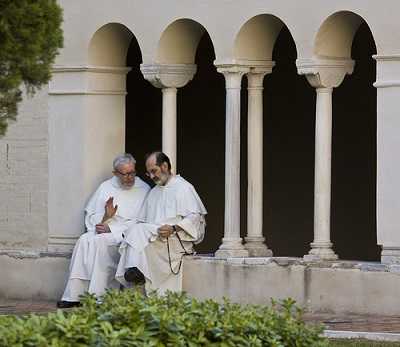
(1 Jn 4: 19-5:4; Psalm 72: 1-2, 14 and 15BC, 17; Lk 4:18; Lk 4:14-22)
Today’s reflection is about God and love. In particular, it is about the mysterious and spiritual nature of love. Love can never touch us and not leave us changed people. That simply isn’t possible. When love is present, it emanates and colors everything around. There is a catch though: we aren’t able to enter into this mystery of love unless we allow ourselves first to be loved. We can only give what we have received.
Today we read,
Beloved, we love God because
he first loved us.
If anyone says, “I love God,” but hates his brother, he is a liar;
for whoever does not love a brother whom he has seen
cannot love God whom he has not seen.
This is the commandment we have from him:
Whoever loves God must also love his brother.
There is a tender revelation each time I am reminded that God loved me first. It somehow grounds me to a beautiful reality too marvelous to really understand. I feel radiant. I turn more freely back to Christ who loves me, to the best of my ability.
Yet here it says that if I love God truly, I would also be loving toward everyone in my life. This includes my brother, an individual I know well and who I share daily life with. Whether the reference is to a familiar brother or community brother, the message is the same. I simply cannot really love God in the way that He loves me, unless I also love everybody else.
This passage cuts to the core of Christianity. It reveals our responsibility to love one another, and not only that, but it says that if we do not love one another, we don’t really love God.
Like so many of Christ’s teachings, it wraps tough reality and love into the same package where they can’t be separated. Do you say you love me? I hear Christ asking me. I want to say yes, yes Lord, you know how much I do. Yet I also know my brokenness, my pettiness, resentments, and judgements. I am aware of my sins, especially the ones that seem to recycle themselves. However, in the spirit of today’s reading, this translates as hating my brother. That may sound harsh, but is it? Consider what I give up each time I choose to sin rather than love.
Today’s passage serves as a guide to beckon me further on my journey with Him in this adventure of divine love to which I am welcomed and called. God never once says, “You are a sinner? Leave my sight.” No, he says, “You are a sinner? Follow me.” He walks with me every step of the way, like a true friend.
Christ teaches me how to love by showing me love. This is always first. The sacraments are visible signs of Christ’s mercy such as forgiveness for all sins, His sacrifice, being embraced in his love, and more. The difficulty of learning to release myself from captivity and blindness, as referenced in today’s gospel reading, starts in God’s mercy for us all and from there leads us outward with knowledge to offer the same to others. This might benefit them, but it will benefit myself ten-fold. I will be able to love God in his definition of divine love. I will slowly replace hate with love, one inch at a time, by executing that change first in my personal life.
God loves us until we can love ourselves. As we accept our incredible and total need to be loved, even as successful, educated and independent adults, we become strong in a totally new way. Our softened hearts lead to new relationships and changed outlooks. We soak up the love that has been available to us all along and just waiting for our attention. We see our brothers with new eyes and are freed from the captivity of hate. How is this possible? By immersing ourselves in divine love, in possibility and hope.
The power of knowing we are loved makes all things possible. Our path as Christians is grounded in the reality of Christ, of Divine Love. He asks us to join him and teaches us how through incredible mercy and careful instruction.
